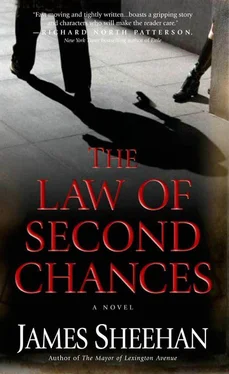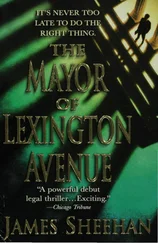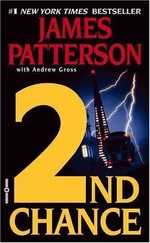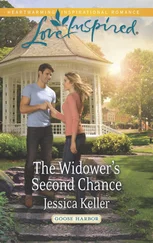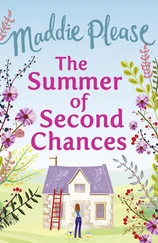James Sheehan - The Law of Second Chances
Здесь есть возможность читать онлайн «James Sheehan - The Law of Second Chances» весь текст электронной книги совершенно бесплатно (целиком полную версию без сокращений). В некоторых случаях можно слушать аудио, скачать через торрент в формате fb2 и присутствует краткое содержание. Год выпуска: 2013, ISBN: 2013, Издательство: James Sheehan, Жанр: Триллер, на английском языке. Описание произведения, (предисловие) а так же отзывы посетителей доступны на портале библиотеки ЛибКат.
- Название:The Law of Second Chances
- Автор:
- Издательство:James Sheehan
- Жанр:
- Год:2013
- ISBN:9781630011659
- Рейтинг книги:3 / 5. Голосов: 1
-
Избранное:Добавить в избранное
- Отзывы:
-
Ваша оценка:
- 60
- 1
- 2
- 3
- 4
- 5
The Law of Second Chances: краткое содержание, описание и аннотация
Предлагаем к чтению аннотацию, описание, краткое содержание или предисловие (зависит от того, что написал сам автор книги «The Law of Second Chances»). Если вы не нашли необходимую информацию о книге — напишите в комментариях, мы постараемся отыскать её.
The Law of Second Chances — читать онлайн бесплатно полную книгу (весь текст) целиком
Ниже представлен текст книги, разбитый по страницам. Система сохранения места последней прочитанной страницы, позволяет с удобством читать онлайн бесплатно книгу «The Law of Second Chances», без необходимости каждый раз заново искать на чём Вы остановились. Поставьте закладку, и сможете в любой момент перейти на страницу, на которой закончили чтение.
Интервал:
Закладка:
Charlie agreed. “We’ll take it up with the doctor on Monday,” she said.
On Monday morning, Pat had a CT scan and an ultrasound. In the afternoon, Dr. Wright examined her. Jack took her to both appointments in a wheelchair because she was too weak to walk.
“I’m okay, Jack. I’m just tired,” she told him. It was the same thing she’d been saying to him and Charlie all week.
“I’m going to put her in the hospital for a few days,” the doctor told Jack and Charlie after the examination. “She needs some IV fluids to get her stabilized and a blood transfusion. Her red blood count is low.”
A blood transfusion . The words hit Jack like a sledgehammer.
“It’s not unusual, Mr. Tobin,” the doctor explained. “Patients on chemotherapy often have to have blood transfusions. What’s troublesome is that she is not eating, she’s losing weight-and she’s in pain. The scans will tell us what we need to know, and we can set a game plan from there. Okay?”
Unable to say anything, Jack just nodded. “You can go in and visit her if you want. I’m having an ambulance take her to the hospital.”
Jack was about to follow the doctor into Pat’s room when Charlie grabbed his arm and held it.
“You can’t go in there looking like that, Jack,” she told him. “Pat will know the doctor gave you bad news. Get yourself together. And remember, it’s our job to keep her spirits up.”
33
Jack hardly slept that night worrying about his wife. Wofford could tell there was a problem as soon as he walked in the restaurant where they had arranged to meet.
“What the hell happened to you, Jack? You look terrible.”
“I’m fine. I didn’t get much sleep last night. My wife is in the hospital. She has cancer.”
“I’m sorry, Jack. Is it real bad?”
“Yeah.”
“Look, we can postpone this hearing until a better time.”
“There may not be a better time, Wofford. At least now she has round-the-clock care.”
“You’re sure?”
“Yeah.”
“Well, just ask me open-ended questions and I’ll take it from there.”
To the casual eye, Henry appeared to be public enemy number one when he walked into the courtroom on Tuesday morning. He was wearing handcuffs, leg irons, and a waist belt to which his handcuffs were attached, and he was accompanied by no fewer than eight sheriff’s deputies, two with shotguns. Since this was a non-jury hearing, the shackles were not removed, and none of the officers left the courtroom. If Henry made the slightest unanticipated move, the possibility existed that he would be shot on the spot.
Henry sat down next to Jack and turned to look at him.
“Are you okay, Jack? You look like hell. And how’s Pat?”
“Thanks for the compliment, Henry. Wofford said practically the same thing. I’m fine, but Pat’s not doing so well. We had a rough night last night. She’s in the hospital.”
“Let’s put this off, Jack. I told you I can wait.”
“No, Henry. This is the best time. Really. She has twenty-four-hour care in the hospital. Her best friend Charlie is there too. And I’m ready. We need to do this right now.”
“Are you sure you shouldn’t put your wife first?”
“Henry, she’s the one who sent me.”
Moments later, Judge Fletcher took the bench. Jack hadn’t even checked to see who was representing the state, but somebody was over there shuffling papers, getting ready.
“This is the evidentiary hearing to determine if Henry Wilson, who is presently on death row, is entitled to a new trial,” Judge Fletcher began. “Counsel, are we ready to proceed?”
Jack stood up. “The defense is ready, your honor.”
A man stood up at the state’s table across the aisle. Jack saw that it was Scott Tremaine, a lawyer he had known for the past twenty years-a lawyer with a great reputation. Scott was no longer with the state’s attorney’s office: he had been specially appointed to represent the state in this case.
“The state is ready, your honor,” Scott said.
“Then let us proceed.”
In a non-jury situation with an experienced judge and experienced counsel, many procedures were short-circuited. For instance, the attorneys did not make opening statements. They both knew that the judge was going to make her decision based on testimony from the witness stand. There was no need to waste her time.
They spent most of the morning marking all the exhibits, agreeing to enter some of them into evidence and stipulating to certain facts. Jack was glad that Scott Tremaine was on the other side. Scott was not a game player. If there was a legitimate basis to exclude something, he would argue until the cows came home against its inclusion, but he wouldn’t make stupid or illegitimate arguments. That tactic would backfire with this judge anyway.
By lunchtime all the exhibits that the parties agreed were admissible-including the transcript from the original trial, the previous motions for new trial, and all previous orders-had been entered into the record. All documentary evidence that the parties could not agree on had been simply marked as an exhibit. When it was time to introduce disputed exhibits, appropriate objections would be made to the judge. The parties had also stipulated that David Hawke, the main witness against Henry, was deceased, and that James Vernon, the man who Wofford had argued in the original trial was the real killer, was also deceased. Scott Tremaine produced both death certificates, which surprised Jack. He wasn’t sure why the state was concerned about the precise dates of death.
The state further stipulated that neither David Hawke nor his cousin Delbert Falcon had ever been charged with any crime arising out of the death of Clarence Waterman, the man Henry was convicted of killing.
After lunch, Jack called Wofford to the stand. There were certain preliminary matters he had to establish for appellate purposes, such as Wofford’s past experience as a criminal defense attorney and his present position as a judge.
Once the preliminaries were out of the way, Jack honed in on the issues. Susan Fletcher leaned forward, listening intently.
“What was your defense in Mr. Wilson’s original trial?” Jack asked Wofford.
“Our defense was that someone else committed the murder and that Henry Wilson was not at the murder scene.”
“Did Henry Wilson have an alibi?”
“No.”
“Did he testify?”
“No.”
“Were there any witnesses who placed him somewhere else?”
“No.”
“So you were limited to creating a reasonable doubt as to Henry Wilson’s guilt by giving the jury evidence that someone else may have committed the crime?”
It was definitely a leading question, but Scott Tremaine didn’t object.
“That’s about it,” Wofford answered.
“What was the evidence you put on to establish that fact?”
“The only evidence I had was a prison snitch, a fellow named Willie Smith. James Vernon was in jail at the time of this trial, and Smith was his cellmate. Smith testified that on the Friday before the trial was to begin James Vernon told him that he murdered Clarence Waterman.”
“Did you think that was strong evidence?”
“Absolutely not. This guy was a convicted felon and the timing of the confession was just too convenient. But it was all I had.”
“Was that the only evidence you planned on putting on when the trial began?”
“No. I planned on calling James Vernon himself.”
“For what reason?”
“He had told me that he was present at the murder and that Henry wasn’t. He said two other men were with him and they did the killing. He wouldn’t name the other men.”
“Did you call him at trial?”
Читать дальшеИнтервал:
Закладка:
Похожие книги на «The Law of Second Chances»
Представляем Вашему вниманию похожие книги на «The Law of Second Chances» списком для выбора. Мы отобрали схожую по названию и смыслу литературу в надежде предоставить читателям больше вариантов отыскать новые, интересные, ещё непрочитанные произведения.
Обсуждение, отзывы о книге «The Law of Second Chances» и просто собственные мнения читателей. Оставьте ваши комментарии, напишите, что Вы думаете о произведении, его смысле или главных героях. Укажите что конкретно понравилось, а что нет, и почему Вы так считаете.
